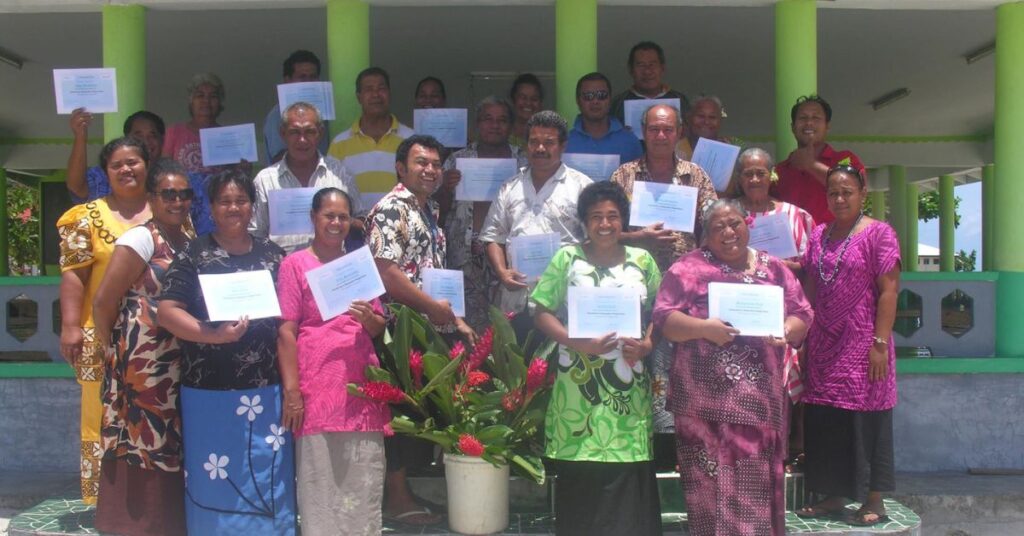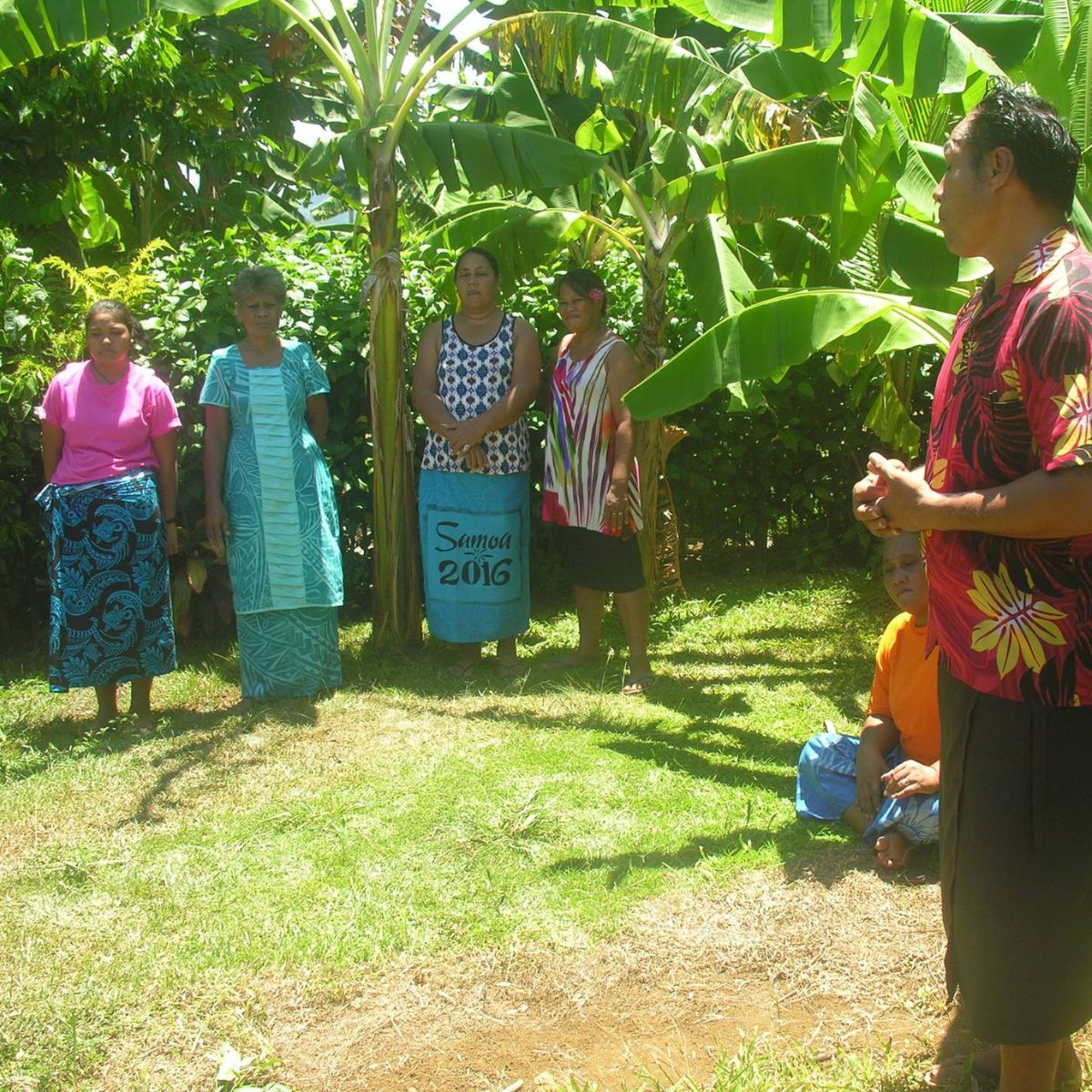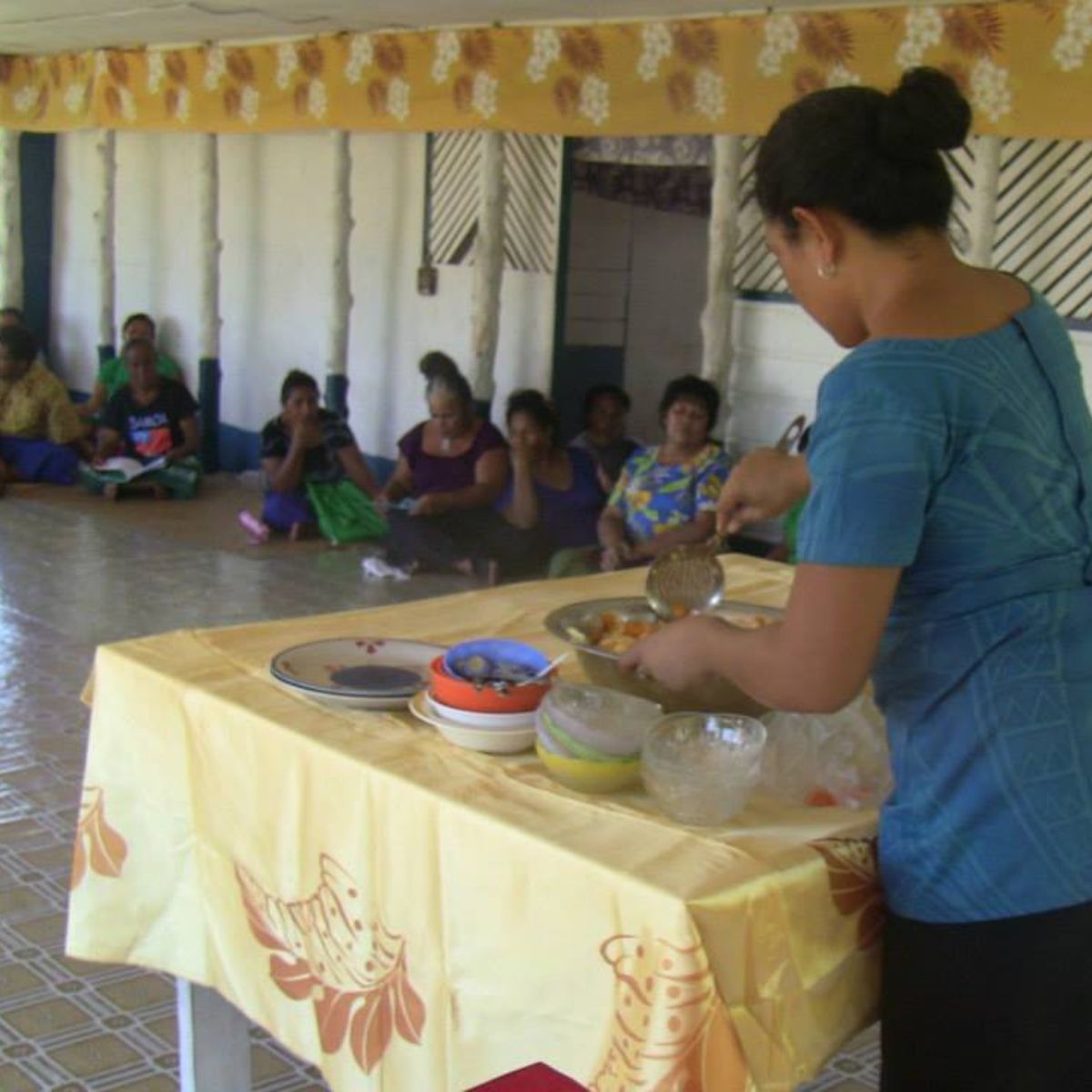

Imagine being able to help hundreds of people in your community transform their health with the power of plants. This is exactly what Dr. Walter Vermeulen has achieved and continues to do so.
Dr. Vermeulen has lived and worked in Samoa for over 40 years. His organization, Matuaileoo Environment Trust Inc (METI) is changing lives and transforming health, inspiring and educating those that live there to transition to a whole food, plant-based (WFPB) diet.
In Dr. Vermeulen’s video presentation for the Plant Forward Workshop Series hosted by CNS in 2021, he talked about the issues facing the people of Samoa and how he and his team are making an impact with their community-driven program.
As with much of the world’s population today, Samoans have many lifestyle-related health issues: 85% of Samoans are either obese or overweight, and they have seen an increase in conditions and diseases such as diabetes, high blood pressure, heart disease, cancer, and chronic arthritis. Dr. Vermeulen attributes this situation to the huge influx of unhealthy foods, such as vegetable oils, white flour, sugary drinks, and animal products, introduced to the islands in the last 50 years. Dr. Vermeulen has calculated that consumption of these relatively affordable, convenient foods means islanders now consume an additional 500 calories daily.

How it all began
Dr. Vermeulen’s team initially set up their program in two villages. They saw a 75% reversal rate in participants’ chronic and lifestyle-related diseases, including heart disease, colon cancer, and asthma. This figure is astonishing, but maybe not so surprising to those who already know how health-promoting and healing a WFPB diet can be. In his experience, Dr. Vermeulen believes that a 100% WFPB diet is the only way to reverse heart disease, early-stage prostate cancer, and type 2 diabetes.
Thanks to a grant provided by the Center for Nutrition Studies, plus funds from the Samoan government, the program has now been rolled out to 10 villages, but Dr. Vermeulen’s work doesn’t stop there. He has an impressive goal of wanting to reach all 300 villages in Samoa!
Training those within the community
Between the two world wars, New Zealand was still the administrator for Samoa, and responsibility for primary healthcare was assigned to the women’s committees. The women’s committee is a traditional entity, bringing the women together within each village.
The Ministry of Health provided them with drugs to administer. Essentially, these committees were self-sufficient, treating 80% of the population’s ailments. But since the 1960s, because of changes in health services, their roles started to decline.
Ten years ago, Dr. Vermeulen’s team started to link up with the women’s committees in order to include as many people as possible in treating non-communicable diseases. Trained to carry out health monitoring tasks, they are critical partners in providing continuous care.
Because Dr. Vermeulen only has a staff of 20, it has been essential to include people from the community to expand the program. These people, known as “path breakers,” are trained as coaches.

The secret to success
An essential component for making this a successful program is the inclusion of a buddy system. Dr. Vermeulen has seen a marked difference in the success rate of someone with a buddy compared to someone on their own, so each participant has a buddy to assist them through the process. The buddy is there to advise on areas such as the preparation of food as well as to provide words of encouragement and support.
The focus is on coaching those going through the program, rather than teaching them. Coaches build a strong bond with participants and following up with them regularly means they can provide support and monitor progress.
A participant’s ability to succeed and achieve their goals can also be affected by their confidence. Coaches encourage self-efficacy, whereby an individual believes it is within their capacity to act in a way that is necessary to reach their goals.
Participants are encouraged to share their successes, which may include taking part in traditional dancing in the clinic! Many participants are so happy that they have been able to transform their health in such a profound manner, especially after, in some cases, being told by their healthcare provider that there was nothing more that could be done for them.
What can also be very impactful is having a respected figure in the community encouraging others to follow the diet; in one village, thepastor spoke to his congregation about a WFPB diet, and 93% of program participants with diabetes saw a reversal in their condition!
Most patients come to the clinic via personal recommendation from others who have benefitted—a true testament to the success of the program and the care and support provided by Dr. Vermeulen’s team.
Start small and make a big impact
Dr. Vermeulen advises starting small, as his team did. You need a “champion”—someone, either you or someone you know, who has experienced a health transformation eating WFPB. This will be key in spreading the word and getting the message out to others about the benefits of eating this way. He suggests approaching neighbors, for example, and introducing yourself to start a conversation and maybe invite them to your place to try some WFPB food.
Dr. Vermeulen started small due to financial constraints, but expansion has been possible by appearing on TV. Although they did not have the funds to do this, one of the TV station managers acquired sponsorship so that team members were able to deliver weekly broadcasts, some of which have been viewed overseas, as well as in Samoa. You may want to consider social media and radio as other ways in which you can get the word out about the work you’re doing.
The motivation behind this work
What motivates Dr. Vermeulen to get up every day and continue his life-changing work? Here is a short clip from the video presentation in which he explains:
You can find out more and watch the full video from Dr. Walter Vermeulen by joining Whole Communities. This is the place where you can connect with others, get support and join inspirational workshops every month. Join us as we come together to build resilient communities of health through WFPB nutrition.
Copyright 2026 Center for Nutrition Studies. All rights reserved.
Deepen Your Knowledge With Our
Plant-Based Nutrition
Certificate
Plant-Based Nutrition Certificate
- 23,000+ students
- 100% online, learn at your own pace
- No prerequisites
- Continuing education credits









